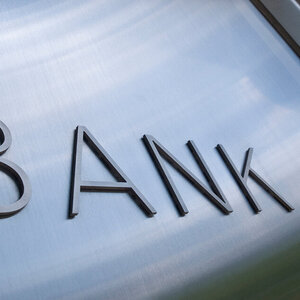The WPJ
THE WORLD PROPERTY JOURNALReal Estate Facts Not Fiction
Commercial Real Estate News

Rising Interest Rates, Inflation Concerns Putting Upward Pressure on U.S. Cap Rates
Commercial News » New York City Edition | By Michael Gerrity | February 23, 2018 9:00 AM ET
According to global property advisor CBRE, the recent rise in inflation and higher interest rates is expected to put upward pressure on U.S. capitalization rates in 2018, counterbalancing the impact of strong global capital flows into the commercial real estate sector.
The CBRE North America Cap Rate Survey provides insights on movements for the major property asset classes. Cap rates for U.S. commercial real estate assets fell slightly in H2 2017, albeit with some variation by sector. Industrial and logistics cap rates tightened the most, with multifamily rates also edging down. Office and hotel cap rates had some modest changes in both directions. Retail cap rates increased, largely for power center assets.
"U.S. cap rates were largely flat outside of the retail sector in H2 2017 though a shift from sale to refinance activity, contributed to lower transaction volumes. The recent spike in inflation and anticipated higher interest rates this year will add upward pressure on cap rates, offsetting the downward forces of expected strong institutional and global capital flows," said Spencer Levy, Senior Economic Advisor and Head of Americas Research, CBRE.
Among the major commercial real estate sectors:
Office cap rates for stabilized CBD properties decreased modestly for most asset classes and market tiers in H2 2017, reversing the upward trend that began in H2 2015. Stabilized suburban office cap rates ticked up, albeit at a slower pace than in recent months. Near-term cap rate stability is expected for the majority of CBD and suburban markets, both for stabilized and value-add product.
"The flat cap rate environment is most indicative of two shifts: a material decrease in foreign capital in 2017 that was often the high bidder, particularly for gateway core office; and the shift towards the highly liquid refinancing markets for many would-be sellers. Overall, we expect flat to rising cap rates in gateway markets in 2018 due to both late cycle and rising interest rate factors, though fast-job-growth smaller markets may see further modest declines as investors search for yield and the depth of the institutional buyer pool in these markets increases," said Chris Ludeman, Global President, Capital Markets, CBRE.
Industrial and logistics cap rates fell by 13 basis points (bps) for acquisitions of stabilized assets, finishing H2 2017 at 6.52%. Cap rates declined in all classes of stabilized properties. Most survey respondents (79%) expect no changes to stabilized and value-add cap rates in H1 2018, while 15% expect minimal decreases of less than 25 bps.
"The industrial and logistics sector has performed exceptionally well though the best product--big box warehouse distribution in major markets with large credit tenants--is now unlikely to see further cap rate compression and there is increased institutional interest in smaller "last mile" sites that benefit from both e-commerce and the growth of new local industries," said Jack Fraker, Global Head of Industrial & Logistics, CBRE Capital Markets.
Retail cap rates increased for shopping centers and some high-street properties in H2 2017, except for high-quality assets in select gateway markets. Value-add centers attracted increased interest from investors in H2, as pricing on core retail centers remained robust.
"Retail cap rates, while showing only modest headline movement overall, actually rose a lot outside the best assets in the best markets, with particular weakness in power centers. Investors are rolling tenants' rents to market levels at their renewal rather than taking back the space," said Mark Bratt, Senior Managing Director, Institutional Properties - Retail, Capital Markets, CBRE.
Multifamily maintained the lowest overall cap rate level among all property in H2 2017. Cap rates fell slightly due to investors' continued appetite for product. Robust investment activity kept cap rates for stabilized property acquisitions, as well as expected returns on cost for value-add assets, at historically low levels in H2 2017.
"Multifamily is showing continued strength with a significant capital shift underway towards secondary and suburban markets cap rate compression could occur even in the face of any modest continued upward interest rate movement," said Brian McAuliffe, President, Institutional Properties, Capital Markets, CBRE.
Hotel cap rates remained steady in H2 2017, especially in CBDs. Nearly every hotel segment and geographic area, including CBD and suburban, had modest, single-digit upticks or downticks in cap rates ranging from -3 to +6 bps.
"The hotel sector continues to benefit from investors seeking yield premiums over other asset classes, despite slowing growth rates in underlying fundamentals. We are sensing renewed optimism around pricing power for operators in 2018. Interest from all equity types continues to be strong, enhanced by a perceived strengthening in fundamentals driven by optimism from the tax overhaul," said Kevin Mallory, Global Head and Senior Managing Director, CBRE Hotels.
Sign Up Free | The WPJ Weekly Newsletter
Relevant real estate news.
Actionable market intelligence.
Right to your inbox every week.
Real Estate Listings Showcase
Related News Stories
Commercial Real Estate Headlines
- U.S. Commercial Real Estate Lending Rebounds Sharply in Early 2025
- U.S. Multifamily Housing Confidence Declines in Early 2025
- Asia Pacific Commercial Investment Holds Steady in Early 2025
- Carnival Plans New Miami Headquarters Spanning Over 600,000 Square Feet
- Hong Kong Property Investors Take a Wait-and-See Approach Due to U.S. Tariffs
- U.S. Multifamily Buyer and Seller Sentiment Improves in Early 2025
- One Trillion Dollars of America's Commercial Property Loans Mature in 2025
- U.S. West Coast Dominates Self Storage Demand
- Phoenix, Orange County and Inland Empire Emerge as Leading U.S. Industrial Markets
- U.S. Mega Distribution Centers Leasing Activity Grew in 2024
- U.S. Commercial Borrowing to Increase to $583 Billion in 2025, Up 16 Percent Annually
- Demand for U.S. Life Sciences Space Spikes 28 Percent Annually in Late 2024
- Multifamily Property Sector in America Rebounding
- Asia Pacific Commercial Property Investment Spikes 23 Percent in 2024
- U.S. Commercial Property Market Primed for Growth in 2025
- Architecture Industry Sees Mixed Signals as 2025 Approaches
- Global Data Center Demand Spikes in 2025
- 2025 Prediction: U.S. Commercial Investment Recovery Expected to Gain Traction
- Holiday Retail Sales for 2024 to Hit Record $1 Trillion
- Tech, AI Industries Drive Largest Share of Office Leasing Activity in U.S.
- Commercial Real Estate Lending in U.S. Enjoys Strong Growth in Q3
- U.S. Multifamily Market Begins Recovery in Q3
- Commercial Investment in Japan Spikes 24 Percent Annually in Q3
- Despite Return-to-Office Mandates, U.S. Office Vacancies Continue to Rise
- PROPSIG Tech Startup Acquired by World Property Data
- U.S. Commercial Mortgage Debt Hits $4.7 Trillion in Q2 as Delinquencies Increase
- Hong Kong Class A Office Rents Continue to Downtick in Mid-Summer
- U.S. Office Landlords Tenant Concessions Decline for First Time in 4 Years
- U.S. Commercial Mortgage Originations Spike 27 Percent in Q2 Over Q1
- Phnom Penh's Commercial Office, Retail Markets Face Slowdowns in 2024
- Global Edge Data Center Market to Hit $300 Billion by 2026
- Commercial Property Transactions in Japan Dive 25 Percent Annually in Q2
- Delinquency Rates for U.S. Commercial Property Loans Downticks in Q2
- Megawarehouse Lease Deals in U.S. Increase in 2024
- Office Tenants' Flight to Quality Buildings Increases in 2024
- Commercial Lending in Japan Upticks 6 Percent Annually in Q1
- AI Driving Significant Global Data Center Growth in 2024
- Total U.S. Commercial Mortgage Debt Rises to $4.7 Trillion in Q1
- U.S. Commercial Mortgage Delinquencies Rise in Early 2024
- Asia Pacific Office Sector to Further Reprice Throughout 2024
Reader Poll
Marketplace Links
This website uses cookies to improve user experience. By using our website you consent in accordance with our Cookie Policy. Read More





